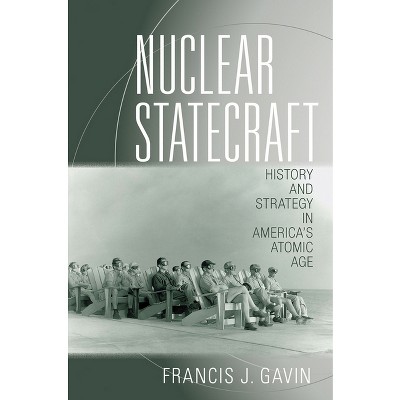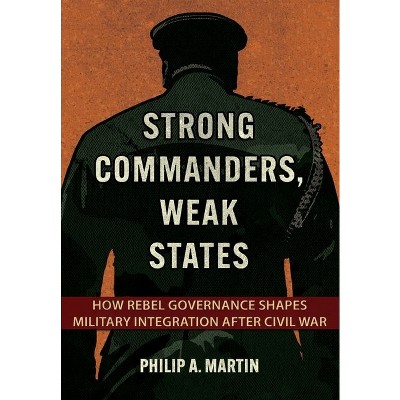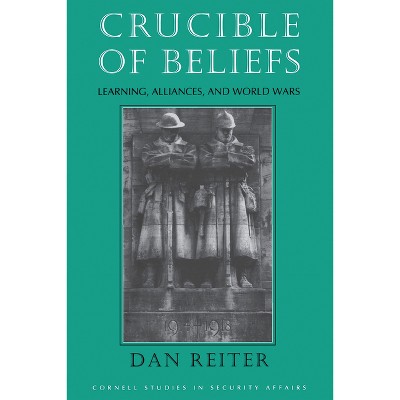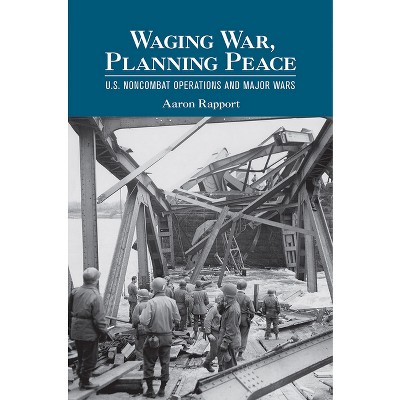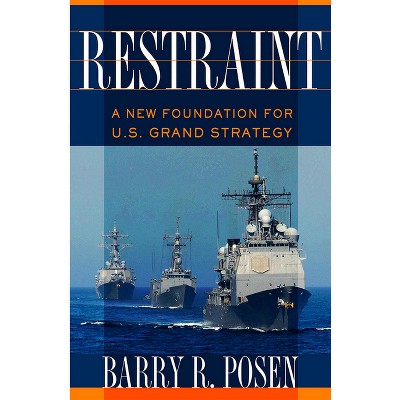Warring Friends - (Cornell Studies in Security Affairs) by Jeremy Pressman

About this item
Highlights
- Allied nations often stop each other from going to war.
- About the Author: Jeremy Pressman is Assistant Professor of Political Science at the University of Connecticut.
- 192 Pages
- Political Science, Security (National & International)
- Series Name: Cornell Studies in Security Affairs
Description
About the Book
Pressman draws on and critiques realist, normative, and institutionalist understandings of how alliance decisions are made.
Book Synopsis
Allied nations often stop each other from going to war. Some countries even form alliances with the specific intent of restraining another power and thereby preventing war. Furthermore, restraint often becomes an issue in existing alliances as one ally wants to start a war, launch a military intervention, or pursue some other risky military policy while the other ally balks. In Warring Friends, Jeremy Pressman draws on and critiques realist, normative, and institutionalist understandings of how alliance decisions are made.
Alliance restraint often has a role to play both in the genesis of alliances and in their continuation. As this book demonstrates, an external power can apply the brakes to an incipient conflict, and even unheeded advice can aid in clarifying national goals. The power differentials between allies in these partnerships are influenced by leadership unity, deception, policy substitutes, and national security priorities. Recent controversy over the complicated relationship between the U.S. and Israeli governments--especially in regard to military and security concerns--is a reminder that the alliance has never been easy or straightforward.
Pressman highlights multiple episodes during which the United States attempted to restrain Israel's military policies: Israeli nuclear proliferation during the Kennedy Administration; the 1967 Arab-Israeli War; preventing an Israeli preemptive attack in 1973; a small Israeli operation in Lebanon in 1977; the Israeli invasion of Lebanon in 1982; and Israeli action during the Gulf War of 1991. As Pressman shows, U.S. initiatives were successful only in 1973, 1977, and 1991, and tensions have flared up again recently as a result of Israeli arms sales to China.
Pressman also illuminates aspects of the Anglo-American special relationship as revealed in several cases: British nonintervention in Iran in 1951; U.S. nonintervention in Indochina in 1954; U.S. commitments to Taiwan that Britain opposed, 1954-1955; and British intervention and then withdrawal during the Suez War of 1956. These historical examples go far to explain the context within which the Blair administration failed to prevent the U.S. government from pursuing war in Iraq at a time of unprecedented American power.
Review Quotes
"In this fascinating book, which is rich in historical detail, Jeremy Pressman shows how states use alliances to check their partners as well as their adversaries. He also explains when allies are likely to be restrained and when they are not. This is an important addition to the literature on alliances."--John J. Mearsheimer, R. Wendell Harrison Distinguished Service Professor of Political Science, University of Chicago
"This valuable study explores the logic of intra-alliance power relationships, looking in particular at moments when states try to use alliance ties to restrain risky military actions by their partners. In a wide-ranging survey of alliances in Europe and Asia over the last century, Pressman finds that the 'restraint motive' for alliance creation is as important as the 'mutual protection' motive."--G. John Ikenberry, Foreign Affairs
About the Author
Jeremy Pressman is Assistant Professor of Political Science at the University of Connecticut.
Shipping details
Return details
Trending Non-Fiction






